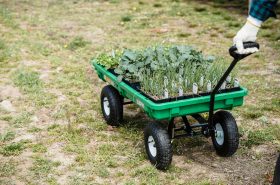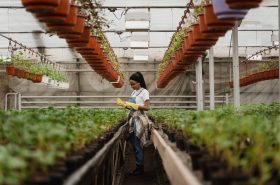Written by: Christina Vestey
According to the United Nations today, there are more than 26 million refugees and 4.4 million asylum seekers globally. So what does it mean to be a refugee? To leave behind everything you know to be home, to lose one’s identity and to be caught in between, with no place to call home and to live with the fear of being sent back to the place you have run away from?
Rebecca is from Burundi, a country where ethnic divisions between the Hutus and the Tutsis led to a civil war lasting more than 20 years. In 1994, as the horrors of the 100-day genocide by Hutu rebels in Rwanda ended, the civil war in Burundi was starting to gain pace. It was the year that Rebecca was born. The daughter of a Hutu father and a Tutsi mother.
‘When a Tutsi girl fell pregnant by a Hutu boy, things became worse. For some time, our grandparents were able to look after us, but in 2002 the rebels started a coup, and fighting intensified. Because, as children, we had Hutu and Tutsi blood, neither family could protect us. It would cost them their lives if they tried to protect us. The neighbours knew that we were children of mixed blood. So, our parents had to make a plan. They were told either you run away or they would die.
I was 12. I started to see things were not okay when I was removed from school out of the blue. I knew something was not right. Some parents didn’t want me to play with their kids. When I asked my Mum why, she tried to divert the conversation. You know how parents try to protect you?
We had to leave at night when everyone was sleeping. I didn’t know why we were leaving. My dad left first. My Mum and I followed with my 2 little brothers. We were given a lift by a neighbour to my Mum’s friend’s house, and we were not allowed outside the gate, as if we were in hiding. Her friend took a risk because she could not let us die on her watch. She gave us food and some money. They were crying, and they gave each other those long hugs. You know when you doubt you will ever see one another again? It was a situation like that. We had to wait until it was dark. A car came to take us to the border of the DRC. We were told that we would be safe once we crossed the border.
We stayed with a family friend where my dad was. We stayed for a while, but were told it was not safe for us to be there. There were rebels around where we were staying. People thought we were somehow connected to them as we were not from the area. It came to my father’s attention that there was a refugee camp in Tanzania. The family helped us get the boat to Tanzania. It was not safe to go by road.
Arriving at the refugee camp was strange as, until then, everything was sort of normal. Until then, we had been staying in houses and had food to eat. We arrived at night, and the security guard gave us blankets to sleep on the floor. The woman who ran the camp did not even question us. She understood the trauma and pain as if she knew what was happening back in Burundi. A family had just left the camp, so she gave us their tent. She asked my mother if she had been raped. My mother said no. She asked if anything terrible had happened; my mother just cried.
What we all shared in common was the same struggle. We were all from different countries, but we were broken in our own ways. So, the least we could do was be there for each other. Everyone was bringing us what they had. One would bring a pot, another would bring a blanket and some clothes. They already knew the struggle; they were already used to that life. In the camp, the people were so welcoming. They were telling my Mum, ‘You are going to be fine; you’re going to discover yourselves.’
As time went by, we started facing the difficulties of survival. My father would leave in the morning and go with some other men and hustle, looking for piece jobs – doing gardening, painting. Anything to get paid. He had a refugee permit that would allow him to move around. My mother started selling in the refugee camp. She would go off in the morning. Once she sold something, she would buy some food, come home, cook, and we would eat. In the camp, maise meal, cooking oil, beans, sugar, and rice was provided once a month. For the rest, you had to make a plan.
My mother was worried about our education. She thought that when I turned 15, I would never go back to school as I had stopped in grade 6. One of the men my father worked with had a brother in South Africa who said if we came, maybe things would be easier. He said,’ Your kids would go to school, and you could find a job based on what you studied for. Your family could be saved.’ My father replied, ‘I have been travelling illegally since leaving my country of birth. It’sbeen risky. How am I going to survive there when I am failing to survive here?’ When he told my mother, she said, ‘If my kids will go to school, let’s take the risk.’ She would go anywhere if her children could receive an education.
My father worked to have some cash for transport to get to Mozambique. The lady at the camp gave us emergency travel documents for my parents to travel. She couldn’t give me and my sibling’s documents as we were under 18, so she wrote a letter. But she warned that our parents need to know how to defend us if we came across difficulties, like police and such. She said,’ you must reach your destination before it expires otherwise, trust me, it is a deportation back home where you are running away from.’ So my mother gave away the things we could not take with us, and we just left with a few things like clothes to change, a soap to bathe and our toothbrushes. We didn’t know where we were going, so we couldn’t carry luggage. That is how we left the camp in Tanzania.
We left by bus and didn’t stay in Mozambique. The guard at the border saw we were from Burundi and told us not to stop and they let us pass. When we got to Johannesburg, I didn’t even know it was Johannesburg. I just saw big buildings. We waited for our contact to pick us up. When the guy arrived, he took my Mum, siblings, and me to the shelter. To this day, I do not know where my father went. I remember he came and checked on us every morning, making sure we were okay.
The owner of the shelter, Sister Adelia, said to us, ‘The first thing you need to survive, before I teach you how to do hair, sew clothing, is get asylum papers. If you are accepted, it means you can work and study in South Africa. That means your children will be able to go to school. If you are rejected, it means you need to be deported back home. We cannot keep you.’
As a family we went to Home Affairs. I have never seen such a long line in my life. The ration lines at the camp were long, but this line was very, very long. My parents did the interview. The asylum was rejected, and they asked my parentsto appeal. The following day they went to appeal, and they got the asylum, but on the paper it was written ‘appeal’. We were told to come back in six months. At the shelter Sister Adelia was like, ‘This is good. We have people who have been on appeal for the past twenty years. You will be renewing your papers every six months until you meet the appeal board. You must be grateful you have this paper. Now you can work.’
We had to move from the shelter after 3 months because every day, new people would arrive. Sister Adelia asked my mother, ‘what can you do?’ She said, ‘I can sell. If you can give me some stock, I will sell it.’ Sister Adelia gave my mum stock, she helped us find a place to stay, she paid 3 months rent and gave us some food. She bought us a bed, pots and everything. That is how our lives started in South Africa. We started in a small shack, but we were grateful we had a private place. Now our family was all together.
Since August 2009, we have renewed our asylum papers every six months. When the pandemic came, the 6 months of asylum were no longer guaranteed. You never feel at home because there’s always that something reminding you that you don’t belong here. There’s always that thing inside of me saying I don’t belong.
Each time you feel the struggle is over, it starts again. It’s our current situation right now as a family. In terms of survival, I have achieved a lot because I got the opportunity to go to school. But in terms of achieving great things, I feel like I need to do more, to plan for my future. I would love to own a house one day, but how am I going to own it? Let’s say for example, I get an opportunity. I cannot go for it because I do not have the right papers. I am caught in one place.
When you see me, I am a human, I am Rebecca. I don’t know whether I am coming or going. In terms of rights, I don’t have any. I cannot exercise any. So if they try and deport me, where will they deport me to? Because I don’t know that place.




